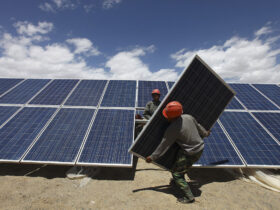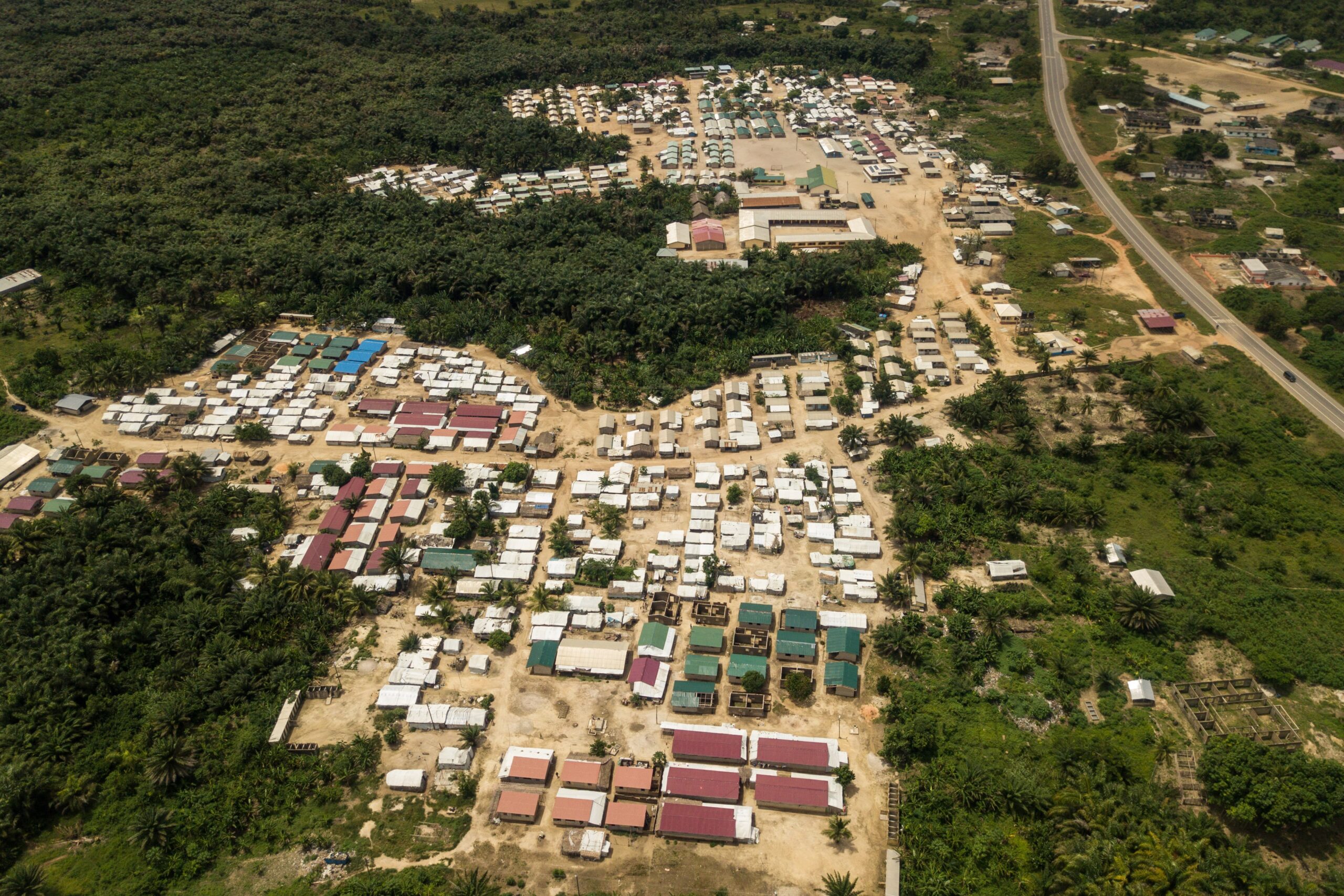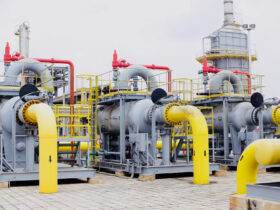
Ghana is no exception to the wave of COVID-19’s economic destabilization. The country began the production of oil in commercial quantities not long ago and the same goes for other countries on the continent. Even though the volume of oil produced by Ghana is relatively small (mainly in the Tano-Cape Three Point Basin in the Western Region of Ghana), it is making a significant impact on the development drive of the nation. For instance, between 2011 and 2018, Ghana earned a little above $7.5billion, according to Public Interest and Accountability Committee (PIAC), a body established by law to monitor petroleum revenues in Ghana.
This revenue is significant in Ghana’s level of GDP. With the emergence of COVID-19, the revenue generated from the petroleum sector for 2020 is expected to drop significantly. This is largely due to a fall in the world price of oil. Ghana’s 2020 projected petroleum revenue is pegged at $1.2 million.
The implementation of the Energy Sector Recovery Programme (ESRP) would take a hit as the government scrambles to focus its resources on fighting the pandemic and keeping the economy afloat. As global oil prices have plummeted, the Ghana National Petroleum Company (GNPC) which receives revenue from oil production companies in Ghana has taken measures to cut expenses.
It is important to note that through the GNPC, the government funds many projects. About 70% of revenue collected through the GNPC goes into the Annual Budget Funding Amount (ABFA). With a fall in global oil prices, this revenue source will be adversely affected thereby having a ripple effect on numerous projects which depend on it.
The announcement by the President of Ghana, during the three-week partial lockdown, of electricity subsidies to cushion Ghanaians against the economic effects of COVID-19 was greeted with excitement. The total cost of the subsidy is pegged at GHC 1.04 billion, according to Solomon Adjetey, the Director of Power at the Ministry of Energy.
With the budget of the country already in deficit, the fear among many experts in the energy sector is that the subsidies may make an already bad situation worse. The projected slowdown in the economy is expected to affect government revenue negatively. The good thing to take out of this situation is the recent announcement by Mr. John Peter Amewu, Minister of Energy, at the bi-weekly COVID-19 press conference organized by the Ministry of Information, that government has paid all its bills owed to the Electricity Company of Ghana (ECG) and even had a balance of GHC 500 million thus taking off significant burden from the utility service providers. Also positive is the minister’s claim that some of the amounts for the subsidy response had been paid. This will go a long way in helping the government to fully focus on the ESRP program and its implementation.
After all, the ESRP is still considered a strategically important direction and a priority to the government of Ghana. The program may suffer some delays in implementation during this period. ECG debt to Independent Power Producers (IPPs) is estimated at $1.5 million. Any further debt incurred may push Ghana close to experiencing intermittent blackouts as threatened by the IPPs for some time now; the more reason why government must honor its promise to pay for the total cost of the subsidies on time.
One of the key objectives of the program is to make the energy sector financially viable. Reducing excess capacity charges from the IPP’s power generation is pivotal to reducing revenue shortfall to the government. As it stands now, capacity charges may increase as many industries and businesses, who form more than half of electricity consumers, are now slowly re-opening after the partial lockdown was lifted.
With many industries and businesses closed during the partial lockdown, the cost of excess power being produced by the IPPs and not being used would likely lead to an increase in the capacity charge paid to these producers. This is because industries consume more than half the significant amount of power distributed.
The Volta Aluminium Company (Valco) is still the single largest consumer of electricity in Ghana. As of 2017, operating at 20% below capacity, it accounted for 3.5% of total electricity consumption. Even after the lifting of the partial lockdown, most industries have not started producing at optimal capacity yet. Demand for electricity in Ghana also depends on the weather conditions prevailing. The way people use electricity, to a significant extent, depends on whether the conditions prevalent are warm or cold.
Ghana finds itself in uncharted waters. With an energy sector already reeling under debt, any decisions made by the government during this period will have long-term effects on the economy and the energy sector for that matter. The IPPs are critical stakeholders in the sector and are owed a lot by utility service providers and the government as part of taking or pay agreements.
Capacity charges are a significant part of the debt owed by the government. If there is any existing excess capacity due to reduced demand for electricity, there is demand for unserved areas to which this could be channeled. These include 1D1F, steel industry expansions, vehicle assembly plants, street lighting, mines, alumina, and bauxite processing. B5 Plus, a steel production plant, alone requires 100 MW to operate optimally. Recently the company has complained of inadequate and erratic power supply.
It is hoped that in the government’s efforts to reduce the financial predicament of Ghanaians during this period, it honors its obligations to ECG, NEDCO, and VRA by paying for the cost of the subsidies on utilities on time. This will most likely have a positive effect of not increasing the debt in the sector being addressed by the ESRP.
It is also quite welcoming news to note that the IPPs and other plants have been given special permissions by the Ministry of Energy to bring in equipment and machinery that would aid their production so as not to inhibit the supply of energy to the populace and industries. The same applies to expatriate technical persons who may be needed by companies in the production of power. The effect of this will also mean that their operations do not suffer and that they do not bridle with maintenance and operational costs.
This period has also been a period of introspection for the government, especially about the effects of the slump in oil prices on local production and revenue. The government would need to assess the sector as many livelihoods are tied to it. It is important to point out that the President’s directive to suspend the payment of water bills and subsidize electricity bills for three months is very welcoming. This will significantly lessen the burden on many households during this period.
Electricity bills constitute a significant proportion of household expenses. We expect the government, in the coming weeks and months, to map out plans and strategies to support local businesses, by making sure there is reduced interruption in the supply of electricity as businesses try to recover, especially in the manufacturing sector. This is the way to go if we want to speed up the recovery of the economy.














Leave a Reply